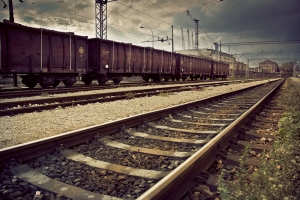 According to recent reports, for at least the last 20 years, one of the most commonly used types of rail tankers has been allowed to transport hazardous materials across the country, this despite the fact that transportation officials knew of a dangerous design defect. The design flaw all but guarantees that the rail car will tear apart in the event of an accident, thus spilling cargo that could catch fire, explode or harm surrounding residents.
According to recent reports, for at least the last 20 years, one of the most commonly used types of rail tankers has been allowed to transport hazardous materials across the country, this despite the fact that transportation officials knew of a dangerous design defect. The design flaw all but guarantees that the rail car will tear apart in the event of an accident, thus spilling cargo that could catch fire, explode or harm surrounding residents.
One reason the issue has become more pressing is recent spike in accidents due to the greatly increased demand for ethanol, a highly flammable fuel typically transported by rail. One recent derailment triggered a massive chemical spill and explosion over the summer in Columbus, Ohio. One eyewitness said the resulting explosion was so intense that it looked like the sun had blown up.
The tanker, known as the DOT-111, has a soda-can shape and is one of the most commonly seen cars on rail freight routes. Though the car itself is not the cause of derailments, the National Transportation Safety Board (NTSB) notes that the steel shell is too thin to resist puncture in accidents. Furthermore, the ends of the car are especially vulnerable to tears and the unloading valves and other fittings can break off during rollovers.
The flaws are sadly, nothing new and have been noted since as far back as a 1991 safety study. Tragically, the potential for things to go wrong has also not been newly discovered. A report found that ethanol tankers have been punctured in at least 40 serious accidents since 2000. The human toll is also very real given that accident reports indicate that since 1996 at least two people have been killed by explosions from railroad accidents and dozens more suffered injuries.
The example of how things can go terribly wrong became a reality in 2009 in Rockford, Illinois. A Canadian National freight train moved through town carrying more than 2 million gallons of ethanol. The crew was unaware that just ahead, rain had washed away a portion of the track. When the tankers rolled over the damaged track, the engineers could tell the train was going to derail.
The cars began falling from the tracks and flying into the air one by one. A driver parked at a nearby railroad crossing sat helpless as the waves of explosions washed over him and his family. One of several cars parked at the crossing belonged to Jose Tellez whose wife, Zoila, was killed. A witness reported seeing Zoila run from the family van in flames before dying. Jose suffered severe burns while his adult daughter, who was five months pregnant, lost the baby she was carrying at the time.
In addition to the fatality, 11 people were injured in the derailment, making it the nation’s single worst ethanol tanker accident. Nineteen of the 114 cars derailed. Thirteen released ethanol and caught fire. In the final accident report, the NTSB listed the “inadequate design” of the tanker cars as a factor contributing to the severity of the accident.
It is incidents like the one in Illinois that have some communities worried about the potential dangers associated with the continued presence of the flawed tankers on America’s railways. According to recent reports, the railroad industry has so far agreed to change all cars built after October 2011 to a safer design. The improvements will mean thicker shells and shields on the ends of the tanks designed to prevent punctures. While this is certainly goods news, the 30,000 to 45,000 existing tankers that will remain unchanged present real concerns to innocent Americans in the path of the railroads.
If you, or someone you know, have any questions regarding personal injury claims, please feel free to contact the experienced car wreck lawyers in Charlotte, North Carolina at Arnold & Smith, PLLC for a free consultation. Call at 704-370-2828.
See Our Related Blog Posts:
Car Wreck Caused by Texting While Driving
Doubt Remains Whether Siri Can Reduce Distraction for North Carolina Drivers
 Charlotte Injury Lawyers Blog
Charlotte Injury Lawyers Blog

